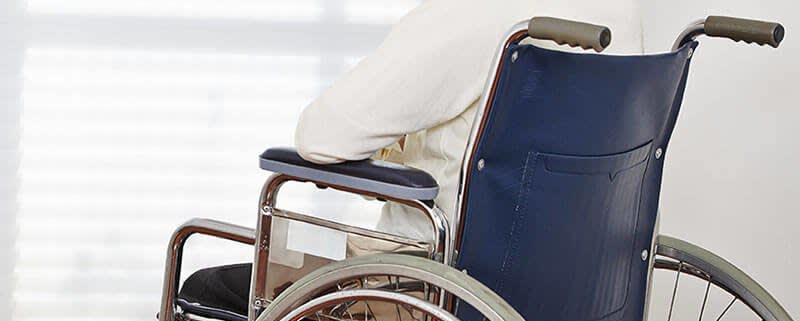
FIRST STEPS TO TAKE IF YOU SUSPECT NURSING HOME ABUSE
Neglect and abuse are growing problems in nursing homes across the United States. Aging demographics, consolidation in the industry, and a tight job market have created a “perfect storm” that has fostered substandard conditions in a large percentage of the nation’s nursing facilities.
According to a National Institute of Health (NIH) study, there are over 1.6 million residents living in over 17,000 licensed nursing homes across the country at any given time, and it is estimated that nearly one quarter of all nursing home residents have experienced abuse at least once. Sadly, these are most likely very conservative estimates. Other studies have indicated that only about one out of every 14 incidents of elder abuse are ever reported.
It is not hard to see why nursing home abuse victims are reluctant to report abuse. Seniors who live in nursing facilities are among the most vulnerable in our society, and many nursing home residents depend heavily on their caregivers for their daily needs. Oftentimes, they are afraid that no one will believe them if they report abuse to somebody, and they fear what will happen to them if they remain under the care of their abuser.
Because so many of the elderly feel like they cannot speak up when they are being mistreated in nursing homes, it is important for their loved ones to keep a close eye on what is happening to them, look for signs that abuse or neglect may be occurring, and if they see something that is not right, be ready to take action.
Types of Nursing Home Abuse
Nursing home abuse can come in numerous forms. The abuse can be physical, emotional, or even financial. Some examples of abuse that occur in nursing facilities include:
Failure to provide for or general neglect of a resident’s needs;
Leaving residents unattended for long periods of time;
Failure to provide clean and sanitary living conditions;
Failure to ensure that the residents are safe and secure;
Name calling, insults, threats, and other forms of verbal abuse;
Isolating a resident from other residents and loved ones;
Exerting control over a resident’s use of the phone, access to transportation, or access to other services or facilities;
Unreasonable restraint or confinement;
Pushing, grabbing, shoving, slapping, hitting, punching, and other forms of physical abuse;
Touching, groping, feeling, grabbing, sexual assault, and other forms of sexual abuse;
Financial exploitation and other forms of financial abuse.
Steps to Take if you Suspect Nursing Home Abuse
Nursing home neglect and abuse can be difficult to spot, because some of the signs are similar to what can happen to an elderly individual due to natural aging and deterioration of their health. That said, there are some common signs and symptoms that may indicate wrongdoing on the part of a caregiver or other employees, such as:
Sudden weight loss;
Bed sores;
Unexplained injuries or hospitalizations;
Poor hygiene;
Bruises, scars, and other unexplained marks on the body;
Unusual behavioral changes;
Reluctance to speak around certain staff members;
Not being allowed to speak to your loved one without a staff member present;
Large and/or unusual financial transactions.
If you suspect nursing home abuse, there are several steps you should take right away to address the situation:
Ensure your Loved One’s Safety
If your loved one is in immediate danger, call 911 and/or your local police or sheriff’s department. Make sure your loved one receives the medical care they need right away, and that local law enforcement has witnessed the situation and documented everything. If necessary, move your loved one out of this facility and into a safer place.
Speak with Your Loved One
If there are clear signs that something is not right, talk with your loved one alone (if possible) and ask them if they feel threatened, have been harmed, have been neglected, exploited, or if they have experienced any other type of neglect or abuse. Bear in mind that they may have difficulty discussing this or may not want to admit to it, so trust your gut if you feel like there is something wrong.
Document Everything
Document as much as possible to show what is happening. Take multiple photographs from various angles to show injuries, unsanitary living conditions, and other problems. Gather medical records and other documents that may either confirm your suspicions or show that what you are seeing is the result of something other than abuse or neglect.
File a Complaint
Speak with the facility manager or supervisor about what you have seen and what your loved one has told you. If you do not receive a satisfactory explanation and/or your loved one’s living conditions do not improve, file a complaint with the Virginia Department of Health online or by calling at 1-800-533-1560 or (804) 367-4691.
Speak with an Experienced Virginia Nursing Home Abuse Attorney
As soon as is convenient, you should talk with a seasoned personal injury lawyer about your legal rights and options. If abuse or neglect has occurred, your loved one is entitled to compensation. Nursing home abuse cases are complex, however, and it is best to involve an attorney as early as possible in the process, so they can go to work immediately to help ensure that your legal right to compensation is protected. For a free consultation with one of the skilled nursing home abuse lawyers at Schilling & Esposito, call us today at 804-261-1001. You may also send us a message through our online contact form or stop by one of our office in person at your convenience.
